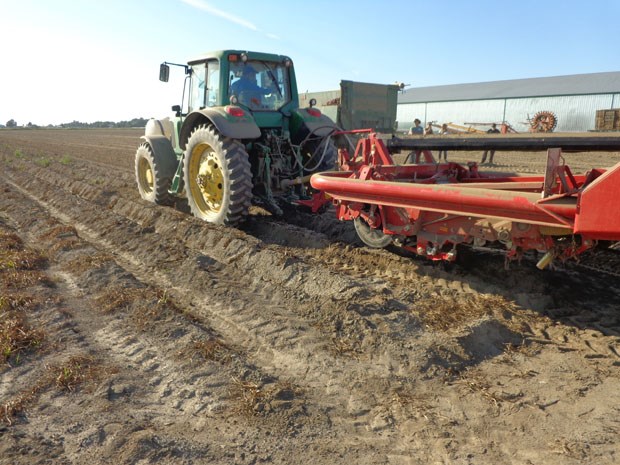The NDP government gave a quarterly update on its finances this week which saw the budget surplus shrink by over $100 million. The province is still in a surplus position but potential ICBC losses of $400 million and a hemorrhaging forest industry could change things dramatically by the next quarterly update.
The forest industry is dying a slow, painful death. A big part of this decades-long decline has been due to the devastating impact of the pine beetle in our interior forests but beyond that the industry failed to evolve from its “primary” industry roots. Raw logs continue to be shipped abroad when they should be processed locally.
It used to be that British Columbia’s economy was primarily a resource-based economy but that is no longer the case. Forestry, mining, fishing and agriculture were the big four for a long time, but our economy has thankfully diversified to keep the ship afloat.
Like forestry, mining has suffered as an industry. Environmental concerns, downturns in markets, land claim issues and other factors have hamstrung growth in this once booming sector of our economy.
Fishing has also declined from the glory days. The government now combines the commercial fishing industry with aquacultureand together they combined for a $1.18 billion contribution to what is now known as the agri-food and seafood sector. Agriculture, livestock and poultry account for $3.21 billion while food and beverage processing accounts for $9.8 billion of the $14 billion sector. (BC fast-stats2017) The agri-food and seafood sector is the fifth largest contributor to our GDP. (cred BC)
I think it’s important to note the processing number in this sector. This implies taking raw materials and adding value to them. Adapting and diversifying can certainly pay off over the long haul. Take our wine industry, for instance. Not only is the product fantastic, the means in which the industry has marketed its product has been exceptional. Tasting rooms, hotels, restaurants and the like abound in the Okanagan. Talk about developing a workforce and the creation of a whole new sector that we now call agri-tourism.
The Ministry of Agriculture may want to rethink some of its land use strategies. It seems like every other day there’s a story of a farmer who has been denied the opportunity to add value to his or her primary business. This approach may cripple the agriculture industry in the end and I don’t think we want to go down the forestry road here because we are talking about food.
Moreover, the stories of the denial of opportunity for farmers can only send a negative message to new farmers and young people who may consider a career in the business. We should be encouraging this potential workforce by showing that innovation and the development of new revenue streams is a good thing.
We shouldn’t put the brakes on a $14-billion contributor to our economy. Rather, we should be looking at ways to nurture agriculture and grow the food economy in the hopes we can support existing farmers and generate new ones.
Mike Schneider is founder of Project Pickle and likes to write about growing, cooking and eating food. He is a Jamie Oliver Food Revolution ambassador.



